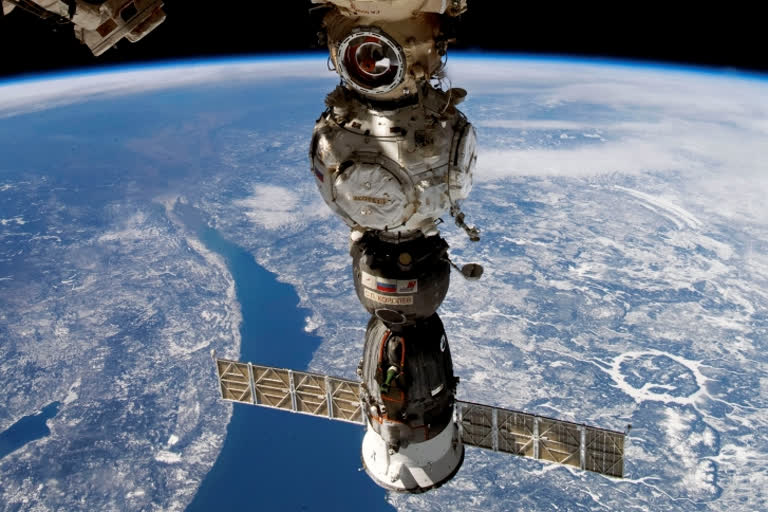Moscow: A coolant leak from a Russian space capsule attached to the International Space Station could have been caused by a micrometeorite, a Russian space official said Thursday. Russia's space corporation Roscosmos and NASA both said that the incident hasn't posed any danger to the station's crew. However, the leak prompted a pair of Russian cosmonauts to abort a planned spacewalk earlier in the day.
Sergei Krikalev, a veteran cosmonaut who serves as the director of crewed space flight programs at Roscosmos, said a meteorite striking one of external radiators of the Soyuz MS-22 capsule could have caused the coolant to escape. The malfunction could affect the performance of the capsule's coolant system and the temperature in the equipment section of the capsule but doesn't endanger the crew, Krikalev said in a statement.
Krikalev said Russian flight controllers were assessing the situation and following temperature indicators on the Soyuz. “There have been no other changes in parameters on the Soyuz spacecraft and the station, so there is no threat for the crew,” he said. NASA emphasized on Thursday that “none of the crew members aboard the space station was in danger, and all conducted normal operations throughout the day.”
Also read: Cosmonauts' spacewalk canceled at space station due to leak
It seconded the Russian statement, saying that “the external radiator cooling loop of the Soyuz is the suspected leak source.” “Roscosmos is closely monitoring Soyuz spacecraft temperatures, which remain within acceptable limits,” NASA said in a statement, adding that “NASA and Roscosmos continue to coordinate external imagery and inspection plans to aid in evaluating the external leak location. Plans for an additional inspection of the Soyuz exterior using the station’s Canadarm2 robotic arm are underway.”
As Russian cosmonauts Sergey Prokopyev and Dmitri Petelin were about to venture outside the station on a planned spacewalk early Thursday, ground specialists saw a stream of fluid and particles on a live video feed from space, along with a pressure drop on instruments, emanating from the Soyuz capsule. Prokopyev, Petelin and NASA astronaut Frank Rubio used the capsule to arrive at the International Space Station in September, and it serves as a lifeboat for the crew.
Krikalev said the station’s future operations would depend on an assessment of the capsule’s condition. “Decisions about the future flight program will be made on the basis of that analysis,” he said. Along with Prokopyev, Petelin and Rubio, four other crew members are currently on the space outpost: NASA astronauts Nicole Mann and Josh Cassada, the Japan Aerospace Exploration Agency's Koichi Wakata and Anna Kikina of Roscosmos. (AP)



